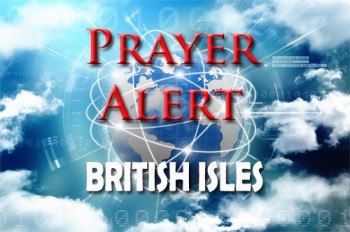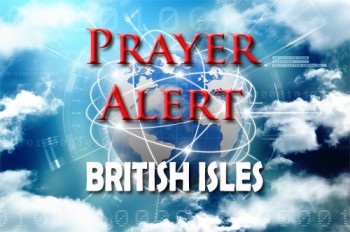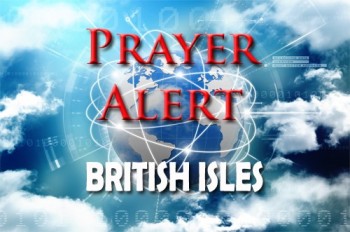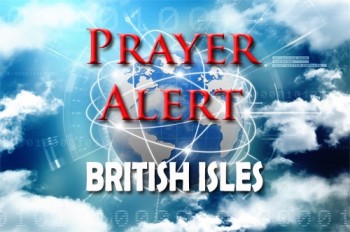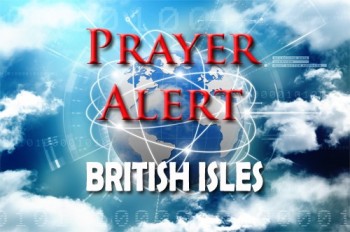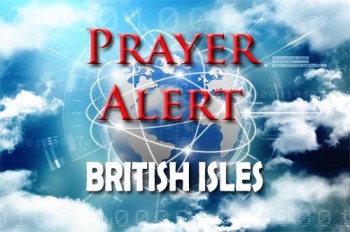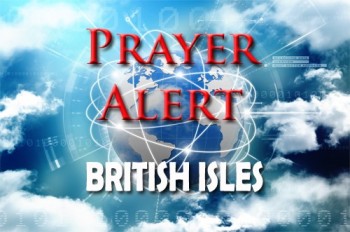Displaying items by tag: Northern Ireland
After-Brexit hiccups: NI food shortages
The international trade secretary, Liz Truss, has admitted Brexit led to food shortages in Northern Ireland after weeks of disruption. Her cabinet colleague Brandon Lewis, the Northern Ireland secretary, had argued that the coronavirus crisis was solely to blame for the shortages, but Ms Truss contradicted him, blaming both issues. Meanwhile, a row broke out between the UK and EU after the Foreign Office refused to grant the bloc’s ambassador in London the same diplomatic status afforded to representatives of individual nation states. Also, anger is building among manufacturers as EU customers cancel orders due to Brexit red tape.
Northern Ireland: mother and baby inquiry
Mary, a former resident of Marianvale Home for mothers and babies in Newry, said, ‘My baby was taken from me. We have been asking the Executive to set up an inquiry for years. Ministers have brushed us aside.’ Her statement echoes the cry of women and babies in near-identical institutions who suffered arbitrary detention, forced labour, ill-treatment, and the removal and forced adoption of their babies. These criminal acts were carried out by both Catholic and Protestant churches and organisations. They enforced a regime of praying, knitting and scrubbing floors. Women were treated as prisoners, not expectant mothers. There were over a dozen of these institutions, where 7,500 women and girls gave birth. The last one closed in the 1990s. Two UN committees have recommended that the government should establish an inquiry into these abuses.
NI Nightingale hospital expanded
Belfast’s Nightingale hospital will be expanded to increase the number of intensive care beds from 24 to 32. Currently 20 Covid-19 patients are receiving intensive care at the facility and four beds are available. The Nightingale will deal with patient surges due to rising numbers of Covid-19 cases in the coming weeks. There are 126 nurses providing round-the-clock one-to-one nursing cover for all 24 beds. The BBC also revealed plans to increase the number of ward beds from 21 to 36. All six NI main hospitals are operating at full capacity or beyond. There is an expected peak during the last two weeks of January.
Churches call for 'urgency and generosity' in Brexit negotiations
The Presbyterian Church in Ireland, the Church of Ireland, the Methodist Church in Ireland, the Irish Council of Churches, and the Roman Catholic Church have insisted it is in everyone’s interests to achieve the clarity and security a Brexit agreement will provide. They have also reaffirmed their commitment to protect the 1998 Good Friday Agreement - which established a new era of non-violence in Northern Ireland following 30 years of brutal sectarian conflict. The group stated, ‘We do not underestimate the challenges faced by the negotiating parties in terms of the complexity and the significance of what is at stake. As church leaders on the island of Ireland, we have welcomed the important commitment of both parties in the negotiations to the protection of the Good Friday/Belfast Agreement in all its parts. We hope that the agreement will serve as a source of inspiration and a foundation to build upon, as we continue to work through the Brexit process.’
Northern Ireland: churches call for face coverings
Currently, under the rules in Northern Ireland and the Republic of Ireland, face coverings are not mandatory at worship services. The heads of the Church of Ireland, Methodist Church, Catholic and Presbyterian Churches said it was their responsibility ‘to ensure that our services of worship are safe places’, so they have asked parishioners to wear face coverings during services. The move comes following consultations with health authorities. The face coverings should be used alongside two-metre social distancing. Earlier in lockdown drive-in services were used to facilitate parishioners. Although shops, restaurants and businesses are restricted to six people, religious services are allowed to have up to fifty attendees.
Northern Ireland: dangerous point of pandemic
Health minister Robin Swann has warned that NI is facing the most dangerous point of the Covid-19 pandemic. He is concerned that some people have stopped following even the most basic guidance. The current daily average of reported new cases is 27, compared to three last month. ‘If we get this wrong now, if we don't keep our controls in place, if we don't see people actually respecting the guidance and regulations, we could see a further increase of Covid outbreaks, more hospitalisations, more people going into ICU and more deaths.’ He added that complacency was setting in among some people even though it is now compulsory to wear face coverings in shops. In addition, he would like to see executive daily Covid briefings on the pandemic to be reinstated.
Northern Ireland: proposed summer schools
The Department of Education (DE) is considering two-week summer schools in late July for pupils going into years 5, 6 and 7. No school or organisation will be obliged to run one; they are entirely voluntary and subject to funding being available and the agreement of the executive teaching unions. Schools will be asked how many pupils they could take on a ratio of one teacher per seven pupils. Possible financial support may be available to schools already running their own summer schools (for current year 4, 5 and 6 pupils). Other proposals being considered are extra online lessons in literacy and numeracy for pupils going into year 7 who need extra support, and virtual learning if they have IT access.
Northern Ireland: cross-border coordination
Two major business groups have written to the governments in Dublin and Belfast to urge coordination in the recovery from coronavirus. The CBI and its Irish equivalent, Ibec, said that an economic reboot will need ‘the highest level of cooperation, coordination and joined-up thinking’. They highlighted the importance of integrated supply chains across the border and Irish Sea, stopping short of requesting a synchronised exit from the lockdown. There have been political differences at Stormont on the level to which an all-island approach should be taken to coronavirus. The two groups say that it is in everyone's interests to have experts on both sides of the border regularly communicating on their respective plans for economic revival and recovery, including all-island business and cross-border employment. They add, ‘It would be helpful and worthwhile for parallel conversations to take place between the two islands, with the North-South Ministerial Council and the British-Irish council providing appropriate formal frameworks for such discussions’.
Pastor’s warning from intensive care
Mark McClurg, an Elim pastor, is in intensive care at a Belfast hospital after becoming infected with coronavirus. In a video posted on social media from his hospital bed, he said, ‘This coronavirus is deadly and is dangerous. It wants to kill you. It wants to take all the life out of your lungs so that you cannot even breathe.’ He wants people to take the virus seriously. He praised the nurses and doctors who had cared for him day and night despite the risk to their own health. ‘They have saved my life,’ he said. ‘I am grateful that I am living. Don’t think this won’t touch you. Don’t think for a moment that this is just a cough and a cold. Look at me and listen. If you get coronavirus and go into an intensive care unit, you are going to struggle to breathe, you could go on a ventilator, so please listen to all the Government’s advice.’
Legal challenge over NI abortion laws
Northern Ireland secretary Brandon Lewis has been warned by campaign group Right to Life that if the government introduces abortion that surpasses what is legally required, the group will take legal action. The current proposals would allow abortions on demand for any reason up to either 22 or 24 weeks, but abortions for disabilities, including Down's syndrome and cleft lip, would be available up to birth. A poll has shown that 58% of Sinn Féin voters and 54% of DUP voters want their country’s new abortion laws to allow a termination only when the mother’s life is at risk. Only 5% of all voters support introducing abortion through the first 24 weeks of pregnancy, as outlined in the proposed framework.

